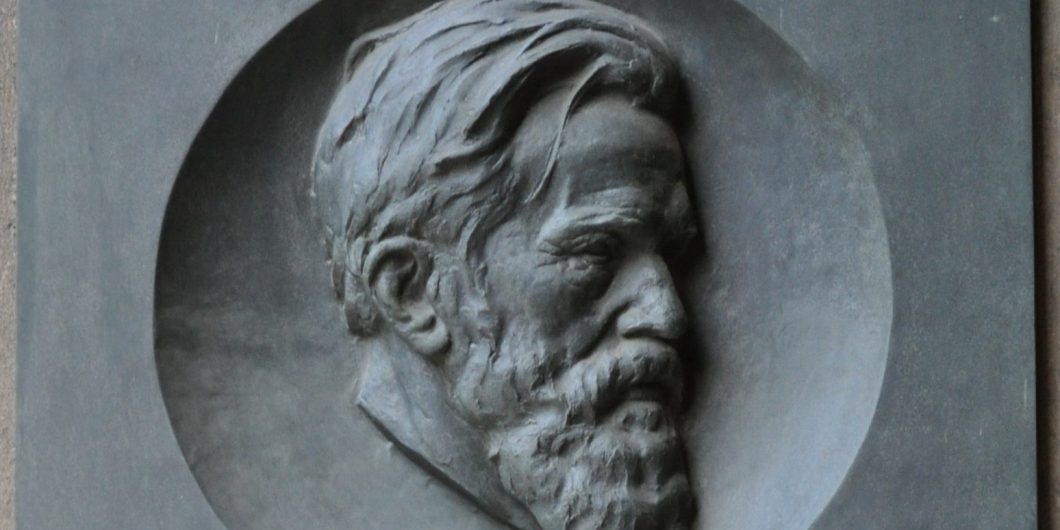Austrian Economics for the Lower Classes
Is our choice in today’s world only between free markets combined with relativism and government interventionism based on objective truths? Listening to many of our political discussions today, particularly, in conservative circles, one can easily conclude that it is. However, in Carl Menger, the founder of the Austrian School of Economics, we find an economist who offers a different vision that can help us address our concerns today.
Carl who? When thinking of the Austrian School, many will call to mind famous free-market advocates such as Ludwig von Mises or Friedrich Hayek. We may think of Murray Rothbard or Israel Kirzner. But in most cases, only those deeply entrenched within Austrian Economics will know what its founder, Carl Menger, stood for, beyond simply paving the road to Mises and Hayek.
After all, Menger did not know that he was paving the road to Mises and Hayek when he published his magnum opus, Principles of Economics, exactly 150 years ago. This founding document of the Austrian School not only provided talented and ambitious scholars, such as Eugen von Böhm-Bawerk and Friedrich von Wieser, with a lucid theory opposed to the German Historical School and classical economics, but it also introduced concepts whose obviousness today underestimates their significance in the late 19th century.
Even if he did not always use these exact terms, the concepts of methodological individualism, the subjective theory of value, marginal utility, and opportunity cost were all prominent in Menger’s theory. His success in accounting for longstanding problems of classical economic theory—such as use value and exchange value, prices, and the nature of a good—from the theoretical starting point of the economizing individual earned him comparison to other great thinkers who extended the frontiers of the human mind, from Adam Smith to Copernicus. When Menger died on February 26, 1921, the Swedish economist Knut Wicksell did not exaggerate in stating of Menger’s Principles that “since Ricardo’s Principles no book . . .has had such great influence on the development of economic theory.”
All of this is happily and rightly celebrated by Austrian economists today. What is less appreciated are some of the points where Menger differs from his successors, particularly regarding objective ends, the role of the state, and his more pronounced and vocal support for the lower class.
To speak of objective ends places us in the realm of philosophy. But whereas Austrians have usually been associated with classical liberals and libertarians, Menger’s political philosophy is more difficult to decipher. One reason for this is that Menger, although a Chair of Political Economy at the University of Vienna, did not pretend to espouse an all-encompassing political philosophy, preferring instead to remain firmly grounded in economic science. Therefore, a sustained reflection on the supreme importance of liberty is largely absent in his work. Instead, what is most important to him is the development of the individual, particularly the growth of his or her knowledge, as well as the progress of civilization. In other words, liberty.
That the objective development of the individual and civilization is both possible and desirable permeates Menger’s work. He opens his Principles by declaring that “[a]ll things are subject to the law of cause and effect . . . Human progress has no tendency to cast [this principle] in doubt, but rather the effect of confirming it and of always further widening knowledge of the scope of its validity. Its continued and growing recognition is therefore closely linked to human progress.” Accordingly, he distinguishes between actual goods and imaginary goods. If a good is something that is known to satisfy a human need and can be commanded to do so, then an imaginary good is something that is wrongly believed to satisfy a human need, such as cosmetics, primitive medicines, implements used to worship idols, and instruments of torture. As civilization advances and as we become more cognizant of the causal relation between things, the number of imaginary goods decreases, which, for Menger, constitutes human progress, since man increasingly strives for objective goods rather than imaginary ones.
With the supreme confidence in science and progress and written prior to the tragedies of the 20th century, Menger’s work indicates that there are certain ends at which the country should aim, and in this, the state has a supporting role to play. This is perhaps best displayed in the lecture notes of Menger’s most famous student: Crown Prince Rudolf von Habsburg.
Knowing that the Crown Prince was destined one day to rule, Menger was in a privileged position to outline some of the duties of the state. As Rudolf’s lecture notes make clear, Menger saw room for the state to build roads, railways, and canals, to set up vocational training institutions, to sign commercial treaties, and to foster trade. He approves specific examples of state intervention such as containing a cattle plague or prohibiting the import of vines from abroad. And yet, he was equally concerned that the state maintain monetary stability and be able to pay its debts. Above all, the state should promote the economic efforts of the citizens and support them in raising their level of prosperity—greater individual prosperity, after all, means greater national prosperity.
But in contrast to the socialists of his day and ours, he emphatically rejects the idea that the state should act as a guardian. He underlines that instances of government interference constitute “abnormal situations.” The beginning and end point for Menger is the dignity of the individual. He says that one of our greatest joys and sources of pride is when we are able to take responsibility and provide for ourselves and our families on our own. When the state assumes the role of a paternalistic benefactor, it robs us not only of our freedom, but also of the incentive to work and the joy we take in our vocation. As Menger states: “Freedom and self-reliance in the economic efforts of citizens are the foundation of the overall development of a state; therefore the state has to realize and defend these fundamental principles. By its opposite, by paternalism, it spoils and hinders its own progress and infringes upon the most natural rights of its citizens.” To be civilized, for Menger, means growing up, and this is not primarily the responsibility of the government.
An educated and industrious citizenry will have to develop organically, through the voluntary interaction and cooperation of individuals and groups through time. Menger’s concept of organic institutions is similar to Friedrich Hayek’s notion of spontaneous order, whereby some, if not the majority, of our most valuable institutions, such as language, money, and law, have not been designed, but have emerged unintentionally due to the interaction of countless individuals pursuing their own purposes.
If Menger takes a more moderate view of state intervention, it may be in light of one of the areas in which he differs from his successors—namely, his unequivocal and surprisingly explicit support of the lower classes and the poor.
These processes also occur in the social realm. According to Menger, communities come into being when people sharing a space begin to feel a common identity. There is no explicit intention to become a community. Similarly, the state comes into being as communities develop mechanisms for collective decision-making. Even the common good, anathema to many libertarians, not only exists, but comes about naturally through human interaction. Indeed, through these manifold interactions within a society, an awareness of community arises through history which leads to “the idea of a closer solidarity.” At this point, the “common interest . . . enters the mental sphere of the population,” and for individuals, this common interest often becomes more important than their own self-interest. The common good slowly—and voluntarily—replaces the “individual despotism” of everyone concerned exclusively with their own gain.
Menger’s appreciation of the importance of a spontaneous order places him in the same camp as Hayek, who was also greatly enamored of Menger’s exposition of organic institutions; however, unlike his illustrious descendant, Menger was more realistic—or pessimistic—in believing that a spontaneous order was not always a good order. From time to time, even government action could produce positive results and would therefore be encouraged to intervene in a spontaneous order that was producing detrimental results. As Menger says, “A statesman who would hesitate to change the law with regard to the common good just because it is really or supposedly of ‘organic origin’ would be comparable to a farmer, a technologist, or a physician who would avoid any interference in the course of natural organic processes out of veneration for the high wisdom which is manifest in nature. And are there not even absolutely noxious organisms?”
If Menger takes a more moderate view of state intervention, it may be in light of one of the other areas in which he differs from his successors—namely, his unequivocal and surprisingly explicit support of the lower classes and the poor. However, he never translated this support into the infantilizing proposals of socialism. He pointed out that the poor were generally better aided by liberal than socialist policies. And similar to today, Menger found that when one actually asked the lower class what they favored, they preferred freedom and individual responsibility to the latest boutique trend foisted upon them by disconnected socialist elites.
In conformity with his methodology in Principles, Menger was concerned with flesh-and-blood human beings. He championed workers’ rights and he argued that factory owners, for example, should be restrained by the government from treating their workers injuriously. Working hours should be limited, even if workers want to work more (we should remember that in Menger’s time 80-hour workweeks in very poor conditions were not uncommon). Menger’s reasoning was to preserve the dignity of the individual, to give the individual the time necessary to develop himself. He feared that treating the lower classes like scum would drive them to embrace communism. Children should not have to work since it harms their health and stunts their growth, not to mention prevents them from attending school.
Most importantly, Menger thought that factory owners had an opportunity to further the development of many people and turn them into good citizens. The founder of the Austrian School could still speak of the common good and patriotism without falling into socialism, nationalism, or protectionism. He could respect the inherited wisdom of organic institutions while still analyzing them critically. He believed that education would give even the lowest members of society the tools they needed to lift themselves up. Menger’s reputation as a teacher was legendary: he lectured with great clarity—simple enough to be followed by everyone, but profound enough that even the brightest students would still be enriched.
And his teaching extended beyond the classroom. Before becoming a prominent academic, he had a promising career in journalism, even demonstrating a flair for entrepreneurship by starting his own newspaper, the Wiener Tagblatt, in the already saturated Viennese newspaper market. Intended to be “a truly democratic paper for the masses”, Menger ensured that his paper was cheap enough to be affordable for the working man. The Wiener Tagblatt was so successful that in less than a year its circulation had already surpassed that of many of the long-established Viennese papers. Menger would say later in life that he could easily have been a millionaire if he had decided to stay in the newspaper business. But his firm conviction that the paper should be affordable ran him into financial difficulties, and so the Wiener Tagblatt was bought out by the government.
Menger’s first business venture had failed. But like all great entrepreneurs, he knew that yesterday’s failure could always be turned into tomorrow’s success, as long as one was willing to persevere. Five years later he published Principles of Economics.


